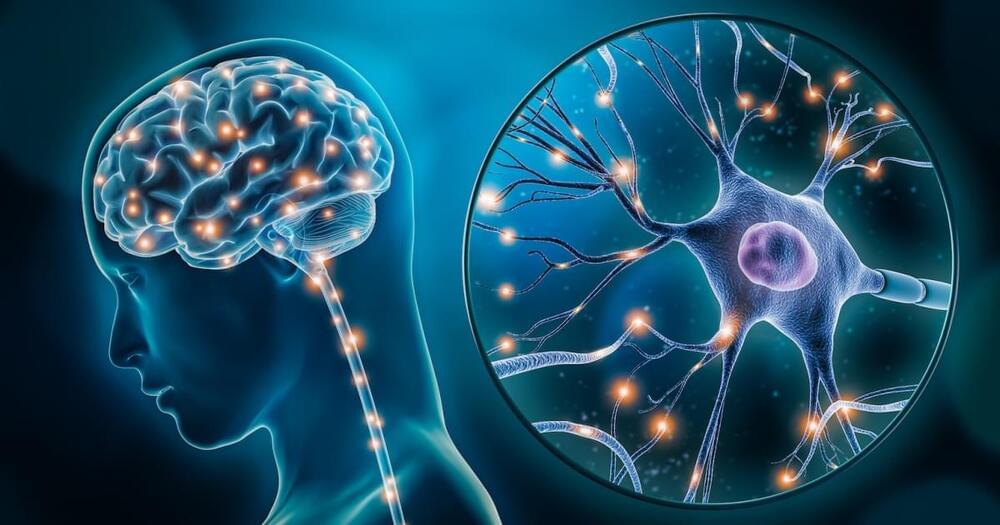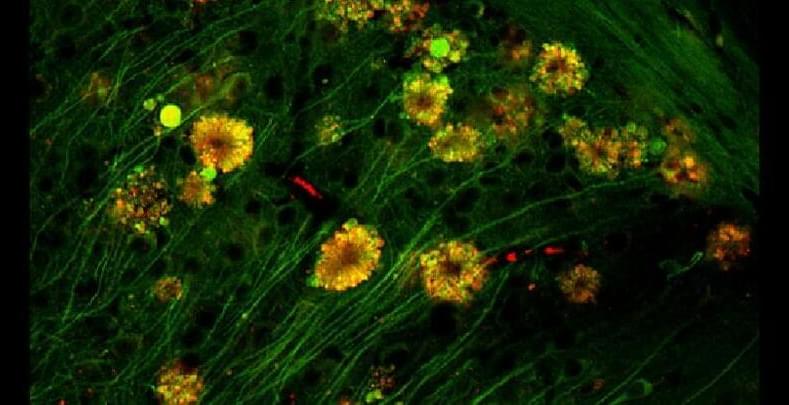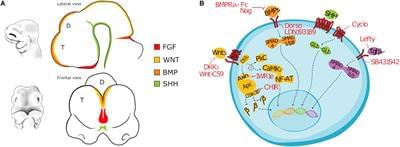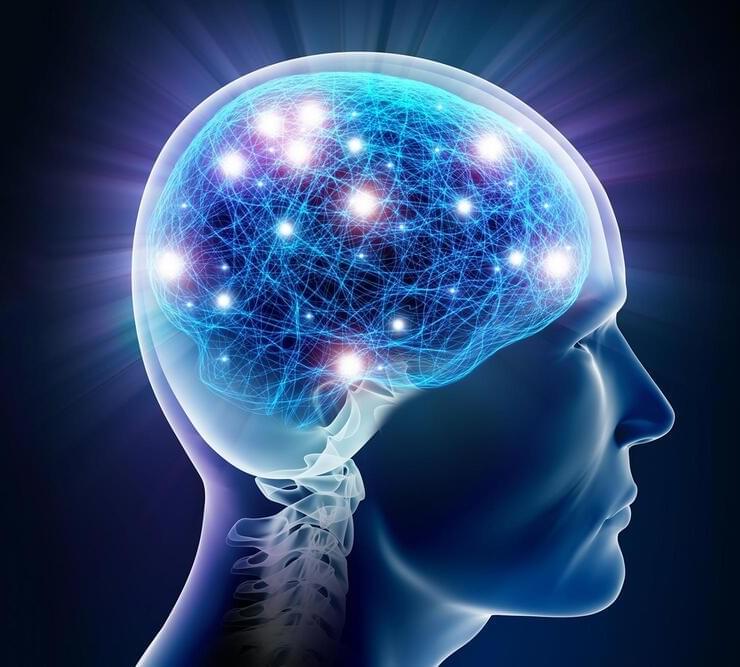Neuropathic pain may result from neuron damage that triggers the production of the “wrong” neurotransmitter. Gene therapy fixes this in mice.



Alzheimer’s disease has long thwarted our best efforts to pinpoint its underlying causes. Now, a new study in mice suggests that ‘poisonous flowers’ bulging with cellular debris could be the root source of one hallmark of the wretched disease and a beautifully sinister sign of a failing waste disposal system inside damaged brain cells.
The study, led by neuroscientist Ju-Hyun Lee of New York University (NYU) Langone, challenges the long-standing idea that the build-up of a protein called amyloid-beta between neurons is a crucial first step in Alzheimer’s disease, the most common form of dementia.
Instead, it suggests that damage to neurons may take root inside cells well before amyloid plaques fully form and clump together in the brain, a finding which could provide new therapeutic possibilities.



Circa 2019 immortality in the human brain 🧠
Brain injuries causing chronic sensory or motor deficit, such as stroke, are among the leading causes of disability worldwide, according to the World Health Organization; furthermore, they carry heavy social and economic burdens due to decreased quality of life and need of assistance. Given the limited effectiveness of rehabilitation, novel therapeutic strategies are required to enhance functional recovery. Since cell-based approaches have emerged as an intriguing and promising strategy to promote brain repair, many efforts have been made to study the functional integration of neurons derived from pluripotent stem cells (PSCs), or fetal neurons, after grafting into the damaged host tissue. PSCs hold great promises for their clinical applications, such as cellular replacement of damaged neural tissues with autologous neurons. They also offer the possibility to create in vitro models to assess the efficacy of drugs and therapies. Notwithstanding these potential applications, PSC-derived transplanted neurons have to match the precise sub-type, positional and functional identity of the lesioned neural tissue. Thus, the requirement of highly specific and efficient differentiation protocols of PSCs in neurons with appropriate neural identity constitutes the main challenge limiting the clinical use of stem cells in the near future. In this Review, we discuss the recent advances in the derivation of telencephalic (cortical and hippocampal) neurons from PSCs, assessing specificity and efficiency of the differentiation protocols, with particular emphasis on the genetic and molecular characterization of PSC-derived neurons. Second, we address the remaining challenges for cellular replacement therapies in cortical brain injuries, focusing on electrophysiological properties, functional integration and therapeutic effects of the transplanted neurons.
Brain injuries represent a large variety of disabling pathologies. They may originate from different causes and affect distinct brain locations, leading to an enormous multiplicity of various symptoms ranging from cognitive deficits to sensorimotor disabilities. They can also result in secondary disturbances, such as epileptic foci, which occur within the lesioned and perilesional tissues (Herman, 2002). Indeed, frequently a secondary functional damage can take place in a region distant from the first insult (e.g., the hippocampus after traumatic brain injury), providing an explanation for cognitive and memory deficits arising after a brain lesion (Girgis et al., 2016). Brain injuries can have traumatic or non-traumatic etiologies, including focal brain lesions, anoxia, tumors, aneurysms, vascular malformations, encephalitis, meningitis and stroke (Teasell et al., 2007). In particular, stroke covers a vast majority of acquired brain lesions.

A study reveals one of the reasons why neurons die in Parkinson’s patients
According to World Health Organization (WHO) estimates, around 7 million individuals worldwide suffer from Parkinson’s disease. Although the origins of this neurodegenerative disorder are not entirely understood, it is known that many of its symptoms are caused by the death of neurons that create dopamine.
A study conducted in mice by a research team at the University of Cordoba has uncovered one of the causes of this neuronal loss: the key resides in the protein called DJ1, whose association with Parkinson’s disease has previously been established, but its specific role was unknown until now.

Remote inflammation in rheumatoid arthritis spreads by neuron crosstalk, and the molecule adenosine triphosphate (ATP) plays a key role in this.
Rheumatoid arthritis is a chronic inflammatory autoimmune disorder that mainly causes painful joints. It’s estimated to affect over 450,000 Australians.
Remote inflammation is a key feature – where inflammation spreads from one joint to another. Research has shown that factors involved include cells migrating from the joints and neural circuits, but until now the mechanism behind this spread had not been explained.
Now, a new study in mice has found that remote inflammation spreads by neuron crosstalk, and that the molecule adenosine triphosphate (ATP) plays a key role in this by acting as a neurotransmitter and inflammation enhancer.
In response to a request from the province of British Columbia (BC), from January 31, 2023 to January 31, 2026, adults (18 and over) in BC will not be subject to criminal charges for the possession of up to 2.5 grams of certain illegal drugs for personal use.
The federal Minister of Mental Health and Addictions and Associate Minister of Health granted the province of British Columbia (BC)’s request for a subsection 56 exemption under the Controlled Drugs and Substances Act for adults (18 years of age and older) in the province to possess small amounts of certain illegal drugs for personal use. BC has referred to this as “decriminalization of personal possession of illegal drugs”.
What this means is that from January 31, 2023 to January 31, 2026, adults (18 and over) in BC will not be subject to criminal charges for the possession of a cumulative total of up to 2.5 grams of certain illegal drugs for personal use. Instead, all individuals found in possession of substances listed in the exemption of up to 2.5 grams for personal use will, at minimum, be provided with information on available local health and social services. They can also be provided with assistance to connect with those services if requested. The exemption only covers possession for personal use by adults (18 and over) in BC with no intent to traffic, produce or export.
British Columbia has been greatly impacted by overdose deaths and related harms, and declared the overdose crisis a public health emergency in 2016. As part of the province’s comprehensive public health response, BC requested a subsection 56 exemption under the Controlled Drugs and Substances Act (CDSA) so that adults in the province will not be subject to criminal charges for personal possession of small amounts of certain illegal drugs.

Tomatoes gene-edited to produce vitamin D, the sunshine vitamin, could be a simple and sustainable innovation to address a global health problem.
Researchers used gene editing to turn off a specific molecule in the plant’s genome which increased provitamin D3 in both the fruit and leaves of tomato plants. It was then converted to vitamin D3 through exposure to UVB light.
Vitamin D is created in our bodies after skin’s exposure to UVB light, but the major source is food. This new biofortified crop could help millions of people with vitamin D insufficiency, a growing issue linked to higher risk of cancer, dementia, and many leading causes of mortality. Studies have also shown that vitamin D insufficiency is linked to increased severity of infection by Covid-19.